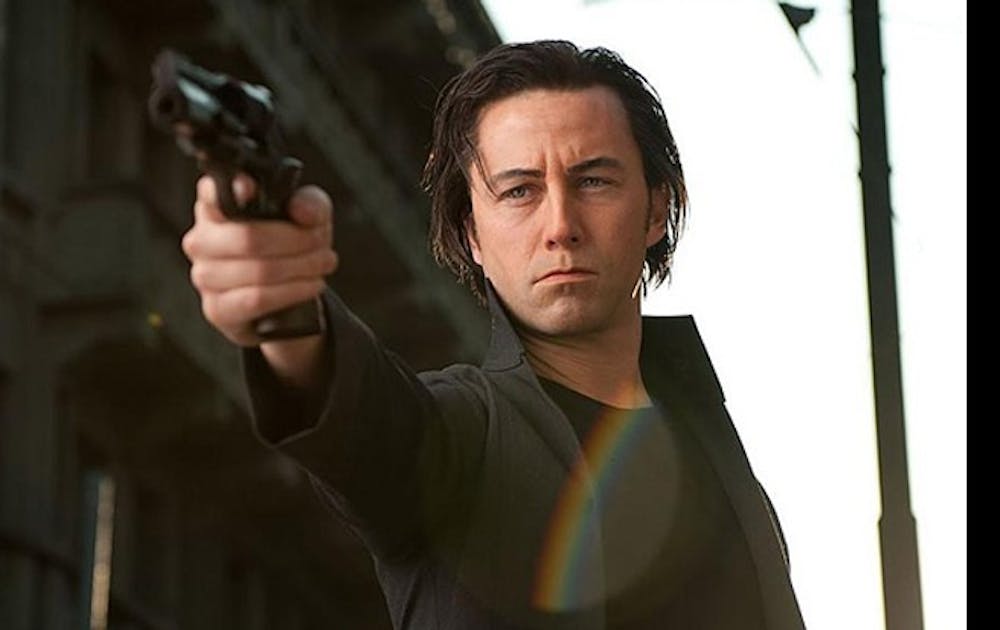The trailer for Rian Johnson’s sci-fi thriller Looper distills American pop culture to two minutes of frenzied glory. We get Bruce Willis and Joseph Gordon-Levitt, made up with a Willis-esque putty Roman nose, running train, engaging in fighting rampages and blowing stuff up—all set to the frenetic, throttling wub-wub-wubs of dubstep. It’s the standard, romanticized, what-Hollywood-thinks-America-wants setup.
But Looper is not a movie that romanticizes its elements, its characters or its genre. It doesn’t preoccupy itself with the motifs and expectations of Hollywood or pop culture. And none of it is set to dubstep.
The result is one of the best films of the year. Looper is smart, tough-minded, witty and unpredictable, with a surprising amount of heart.
Here is a film that richly explores many of the celebrated themes that make us human: love, loss, regret, revenge, sacrifice, redemption. Yet Looper does not try to sentimentalize its characters. There are no clear-cut heroes or villains. There are only characters who, faced with a bleak, unpredictable, unyielding world, try to make do.
There are a few main players in this film: young Joe (Joseph Gordon-Levitt) the looper, a hired hit man who kills mob targets from 2074 transported back to 2044; old Joe (Bruce Willis), a hardened Joe 30-years-older, none too enthusiastic to be killed by his younger self; and Sara (Emily Blunt), a sexy single mom fiercely protective of her unusual son, Cid (Pierce Gagnon in an extraordinary performance). All are willing to go to great lengths to achieve their goal—to save themselves or protect the ones they love—and all make questionable choices in the process.
Time travel is introduced—something that “will have been invented 30 years from now,” immediately outlawed and used only by the criminal underground—but the how and why and mythology of it remains unexplained. It’s a wise choice; while we see the time-traveling victims and the machine that transported them, we ultimately engage with the results, complexities, loops and paradoxes. Joe’s mafia boss gets the gist of it when he tells Joe, “this time-travel sh*t just fries your brain like an egg.” Looper cleverly plays with the possibilities of time travel—drawing scars into oneself as a message for one’s future self, for example—but keeps it a “will have done,” a subjunctive, a catalyst that drives the plot rather than forms its basis. The film’s setup doesn’t jerk us around on a time-traveling ride; the action feels real and direct, and we are free to immerse ourselves in the story that unfolds.
This all escalates to a finale that represents a four-way philosophical compromise between the main players. It is at once astonishing, poignant and ingenious—a conclusion that ties up all loose plot ends neatly. In its climax, Looper is ambitious enough to ask complex questions of human nature: how far will we go to protect, to save, to avenge those we love? Yet this is a film that does not ultimately emphasize who survives, but instead questions whose account, whose perspective, whose version of events we ultimately trust. At the end of the day, whose story endures?
These questions are up to you to answer. Looper is the kind of film that made me clap and cheer when it finished at the theater and stayed in my thoughts days after. It is worth seeing, and seeing again.
Get The Chronicle straight to your inbox
Sign up for our weekly newsletter. Cancel at any time.

